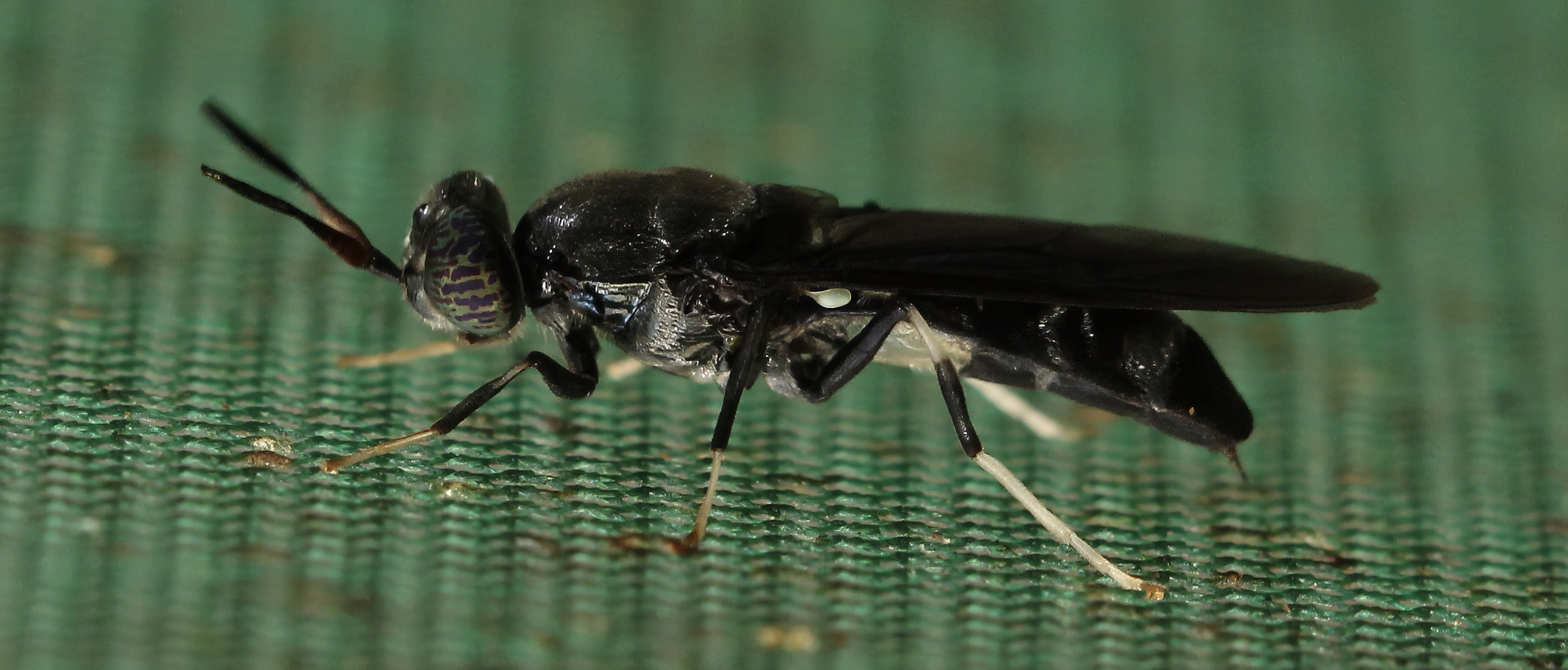
Can we simultaneously reduce greenhouse gas emissions, cut the amount of organic waste going to landfills, increase agricultural productivity and soil fertility, and improve food security in Namibia? According to Sven Gruttemeyer of Biocycle: yes, we can! His not-so-secret weapon? Black soldier flies that convert organic waste into useful agricultural products.
This is not your ordinary housefly! The black soldier fly (scientific name: Hermetia illucens) is a large, black fly that occurs widely in warm, tropical parts of the world including northern Namibia. If provided with enough food and optimal growing conditions, it’s entire life cycle from egg to breeding adult lasts only 18 days. The fly carries no diseases that are transmittable to humans and the brief adult stage cannot bite. The black soldier fly is taking the world by storm as a means of turning organic waste into livestock feed and organic fertiliser using minimal water and electricity inputs.
The fly larvae have a voracious appetite and will consume anything from rotting fruit to manure and dead animals, even processed foods like pizza! Towards the end of its larval stage, the fly turns into a 3 cm long prepupa that is packed with protein, calcium and other nutrients. Since each adult produces 200-600 eggs, only a few pupae need to be kept to replenish the adult population. The rest are baked in an oven and dried in the sun to be used as a key ingredient in chicken, pig or fish feed, or high-quality pet food.
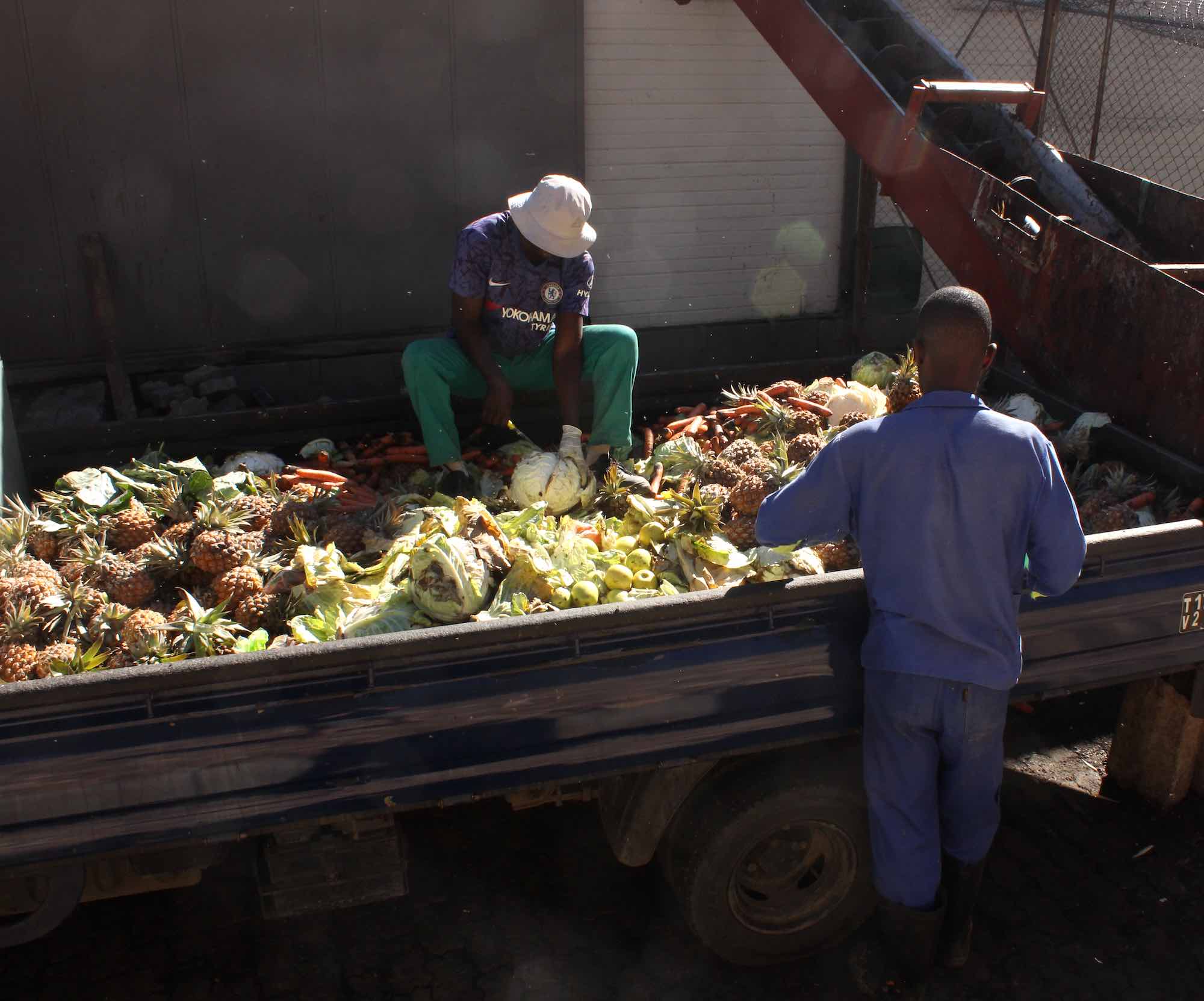
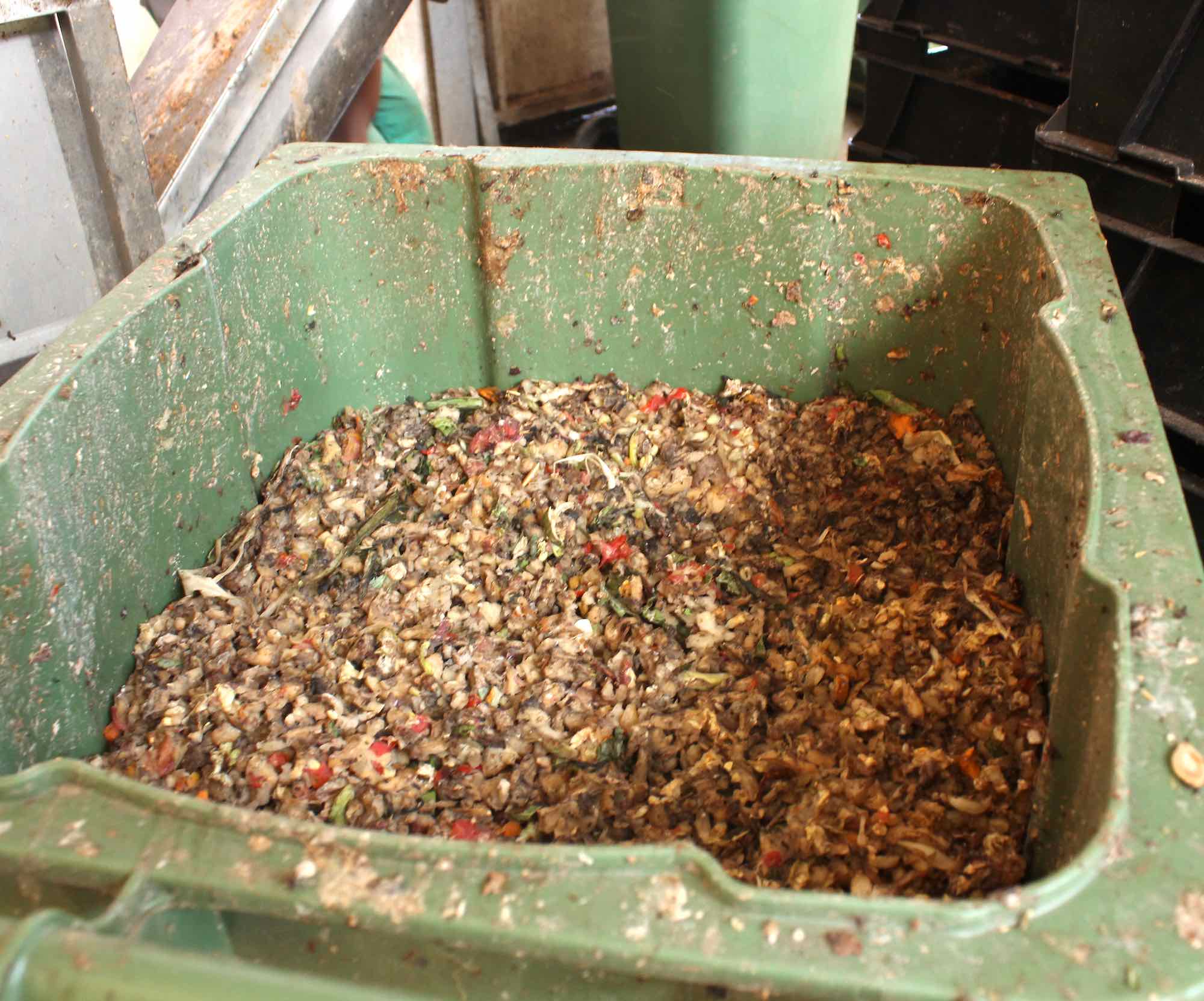
The fly itself is not the only useful product, however, as it converts the organic waste into ‘frass’ (insect poop) that promotes plant growth and pest resistance. It can be applied directly on planting beds, or mixed with soil to increase its water retention capacity and overall soil health.
From his small warehouse on the outskirts of Windhoek, Sven and his team of 10 staff members at Biocycle use black soldier flies to turn 60 tonnes of organic waste into 6-8 tonnes of feed and fertiliser per month. None of the flies’ outputs are waste products. He currently obtains his waste from the distribution centres of fresh fruit and vegetable shops, which are obliged by law to destroy food that is no longer fit for human consumption. The plastic packaging the food comes in is recycled into plastic piping in Okahandja.
Waste from local breweries is an especially nutritious food source for larvae, as the spent grain left behind after beer production is highly digestible and nutritious. The only food that has to be purchased is wheat bran – a by-product of pasta production – that is used to feed newly hatched larvae.
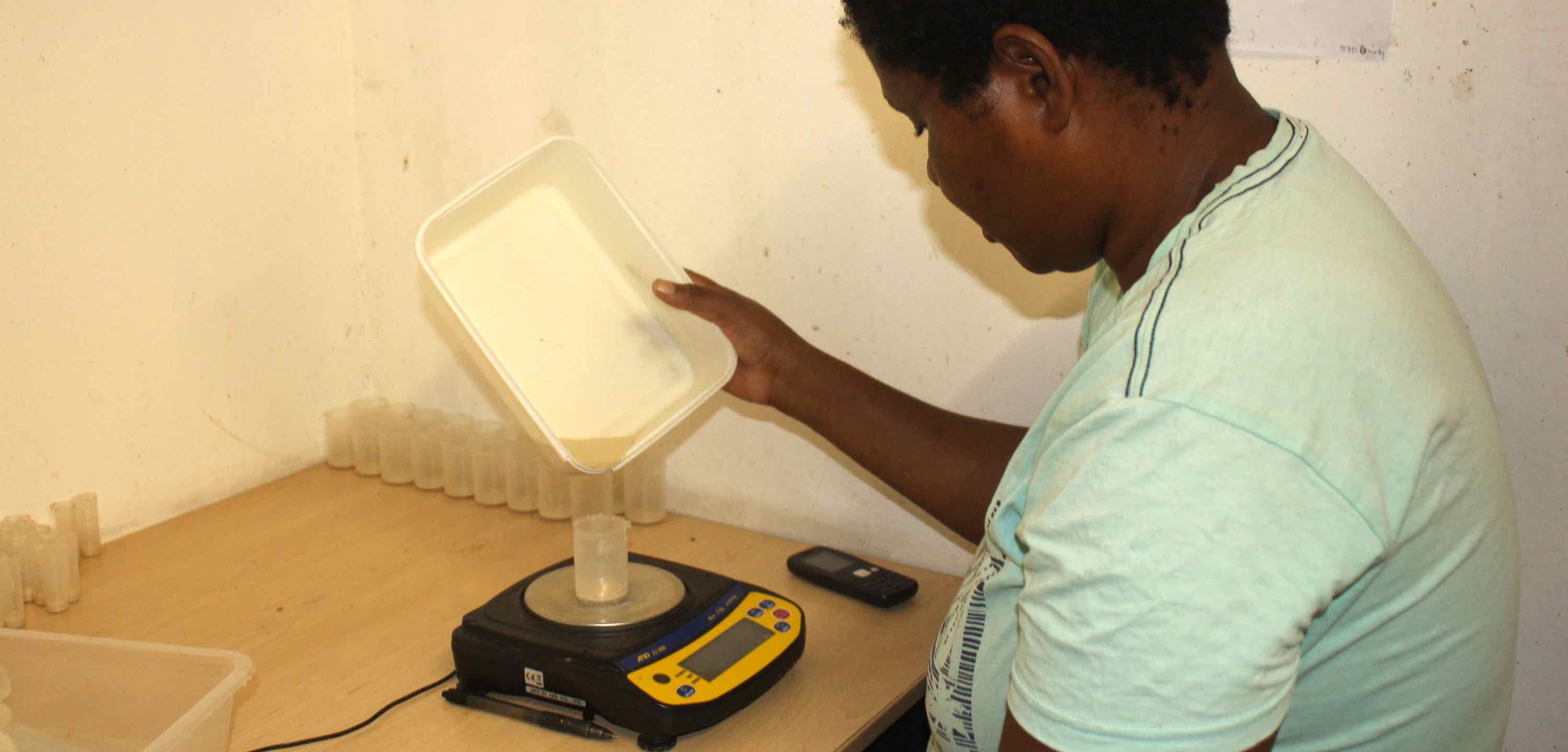
This process is relatively labour intensive, as each step of the fly’s short life cycle must be carefully managed, which is good news in a country with high rates of unemployment. Each stage is kept in its own room within Biocycle’s well-organised warehouse. The adult flies are provided with suitable places to lay their eggs, which are then hatched and harvested by hand. Each batch of tiny larvae is carefully weighed and transferred into 2 litre ice cream containers of pasta wheat bran. Five days later, the larvae are big enough to transfer into crates containing a mix of spent grain from the brewery and food waste. After another week of growth, they become prepupae. Only 1% of the prepupae are transferred back to the adult fly room to pupate and complete their lifecycle by turning into adults and laying more eggs.
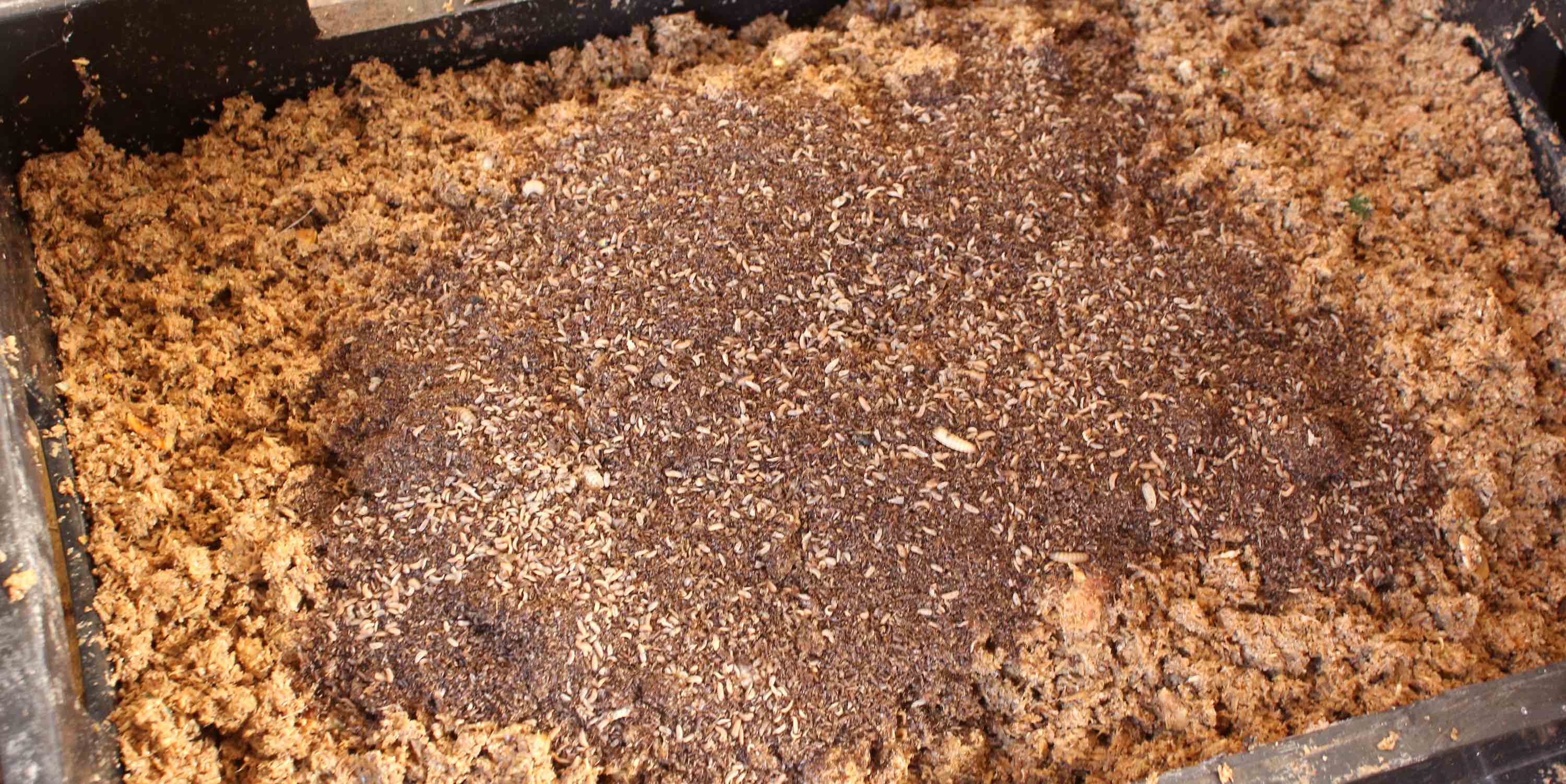
The highest value Biocycle product is produced by baking the remaining 99% of the prepupae in a large oven for a whole day. This product is exported to the USA via South Africa as an ingredient in dog and cat food that is high in protein and low in allergens. While black soldier flies are farmed in the USA, Biocycle’s product is competitively priced. Accessing this lucrative export market is important for Biocycle’s long-term financial sustainability, and more export markets will be explored in future.
The livestock feed is produced by killing the prepupae initially in the high temperature oven (heated to over 180 degrees Celsius to ensure a quick death) and then taken out to dry in the sun for a few days. The protein content of this product is so high that a mixed feed requires only 5% of it to provide enough protein and calcium for chickens, especially laying hens. This product is sold locally to chicken and pig farmers, and will be a key input to aquaculture (fish farming) when this sector is further developed in Namibia.
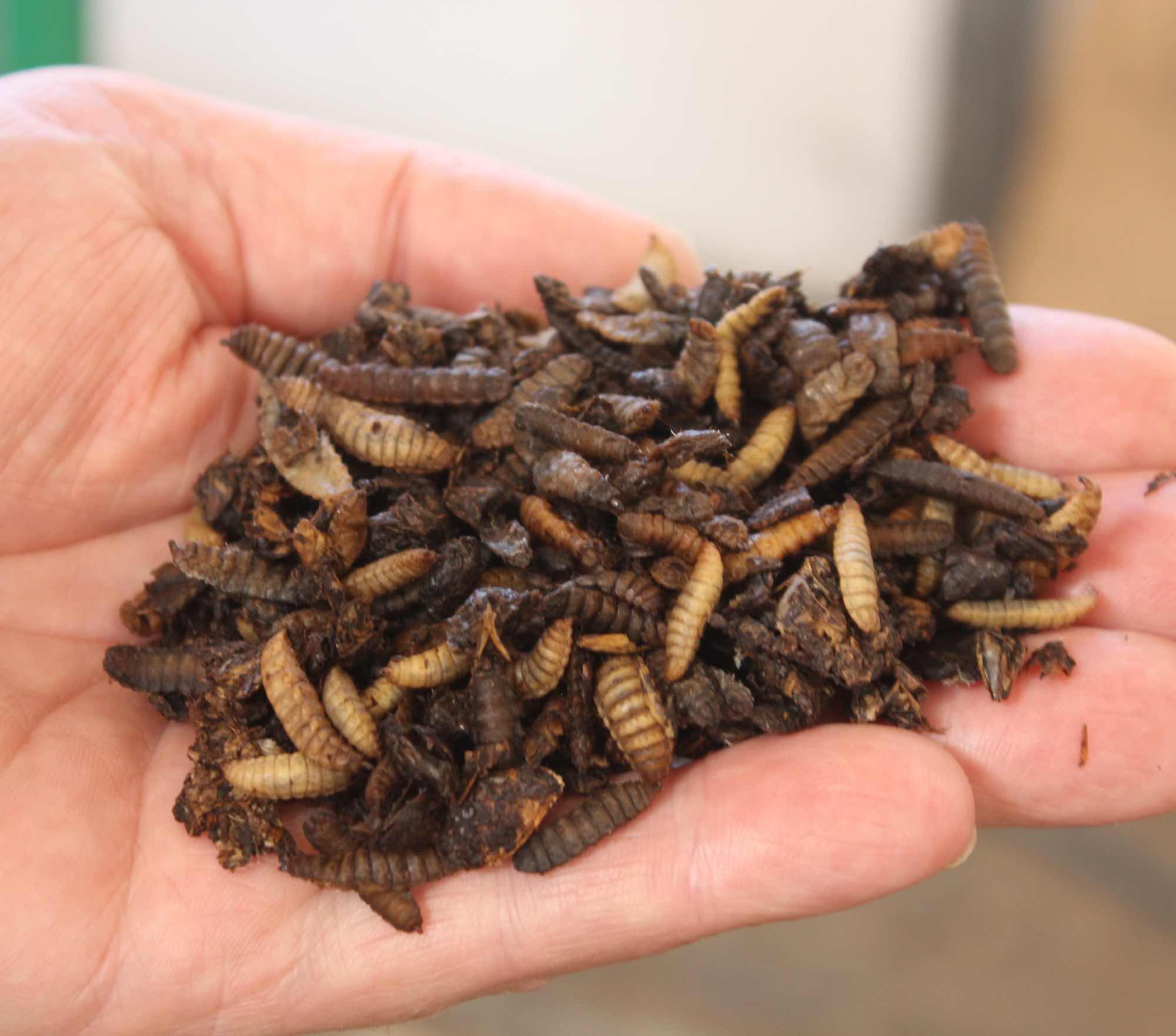
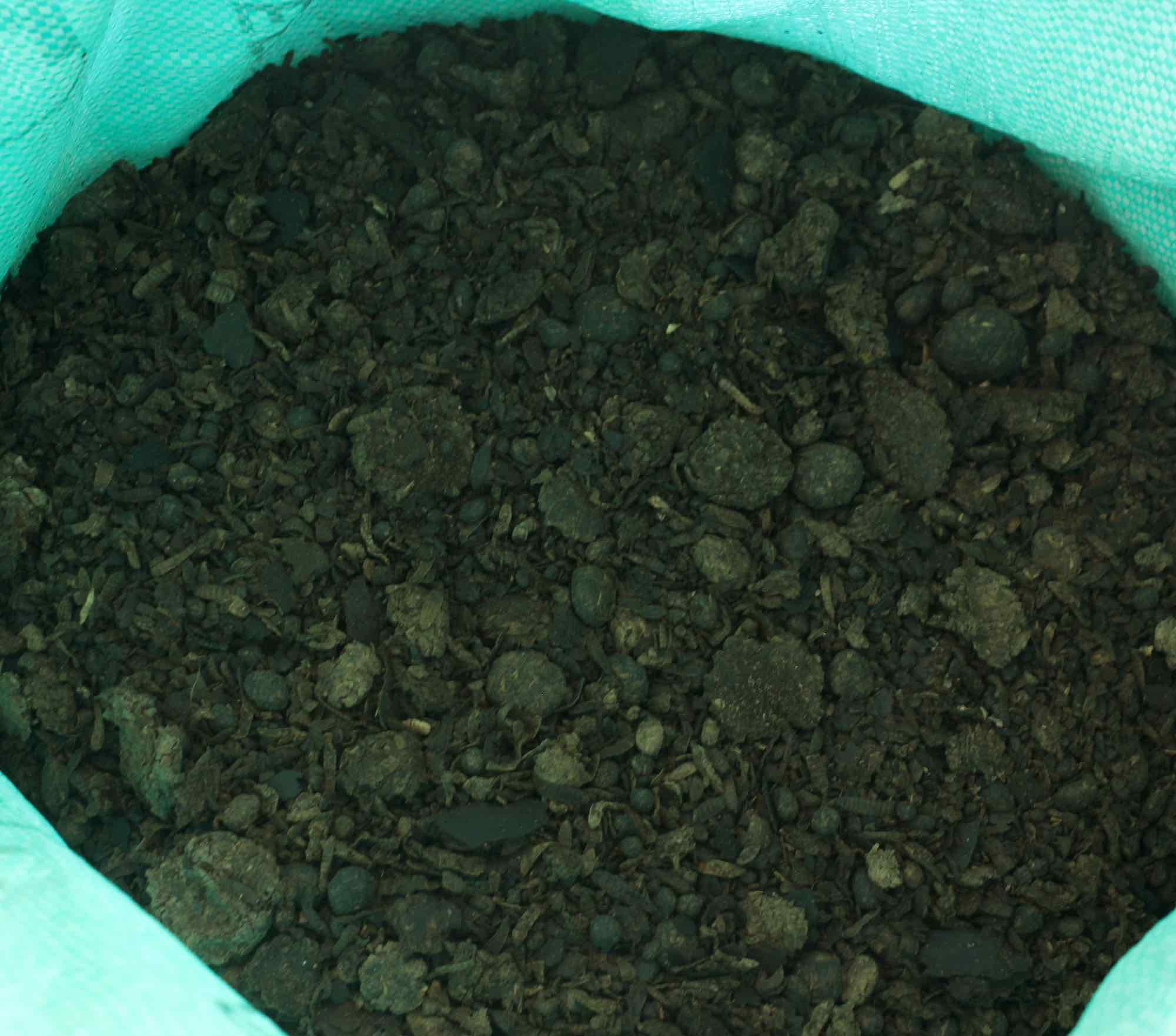
Biocycle currently sells the organic fertiliser produced by the larvae to local nurseries and wine farms. This product has the potential to increase agricultural output by improving soil health without using artificial fertilisers that cause long-term ecological damage. Organic fertiliser is an excellent input for the growing conservation agriculture and organic farming movement in Namibia.
If you were starting to think that there cannot possibly be more benefits from one insect, think again. Almost all of the organic waste in Namibia goes to landfill, where it sits and rots. Rotting organic matter produces methane, a greenhouse gas that is 28 times more powerful than carbon dioxide. The gas that escapes from the landfill enters the atmosphere and contributes to climate change. By diverting organic waste from landfills and feeding it to black soldier flies, Biocycle is reducing methane emissions from organic waste by around 80%.
As an added benefit, rotting organic waste generates smells that attract rats, baboons, houseflies and blowflies, which are a common feature of landfills. By contrast, the black soldier fly larvae quickly reduce bad odours by digesting the rotting matter, thus outcompeting other fly species. A black soldier fly warehouse is therefore a far more pleasant and sanitary environment than a landfill.
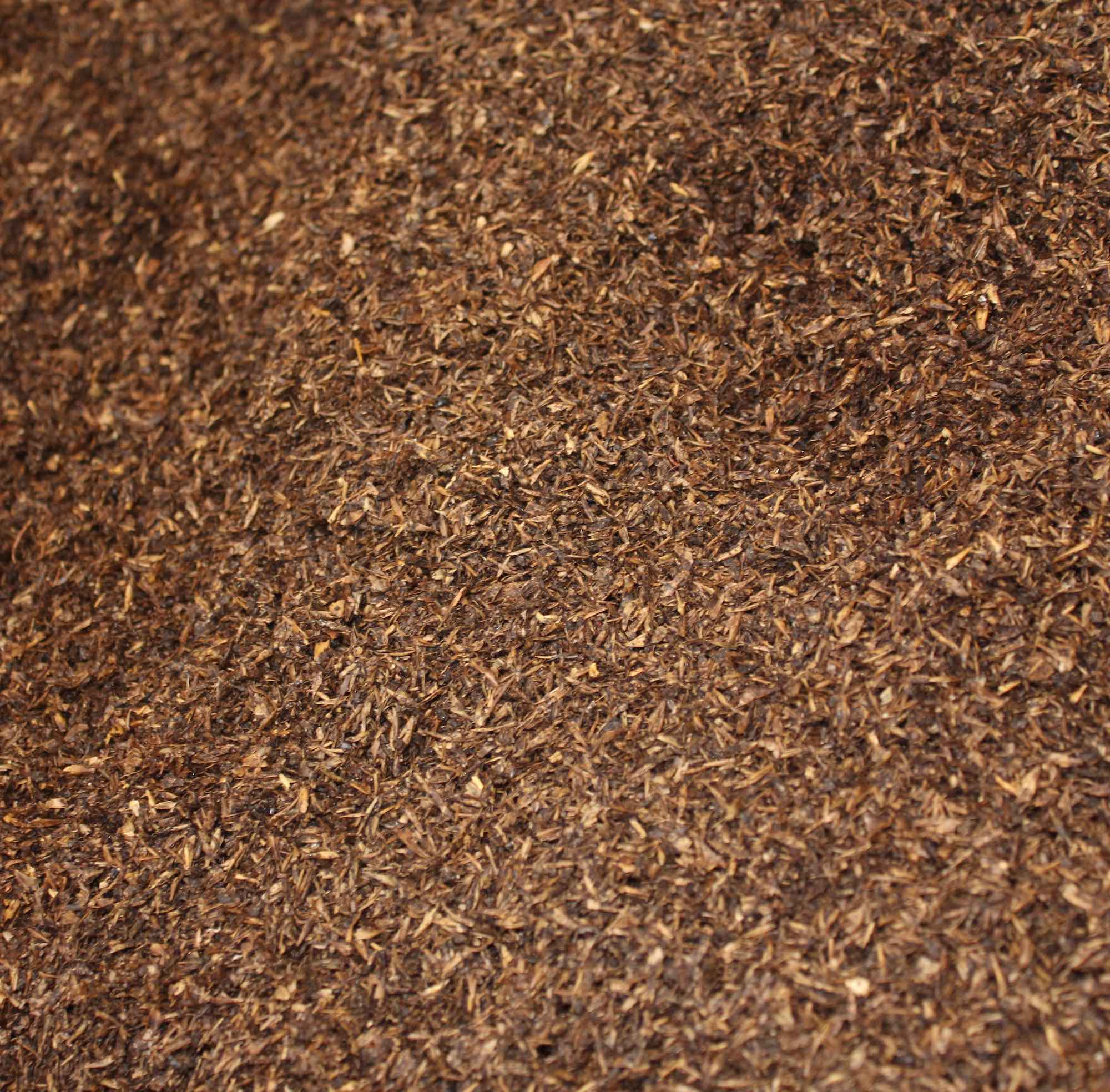
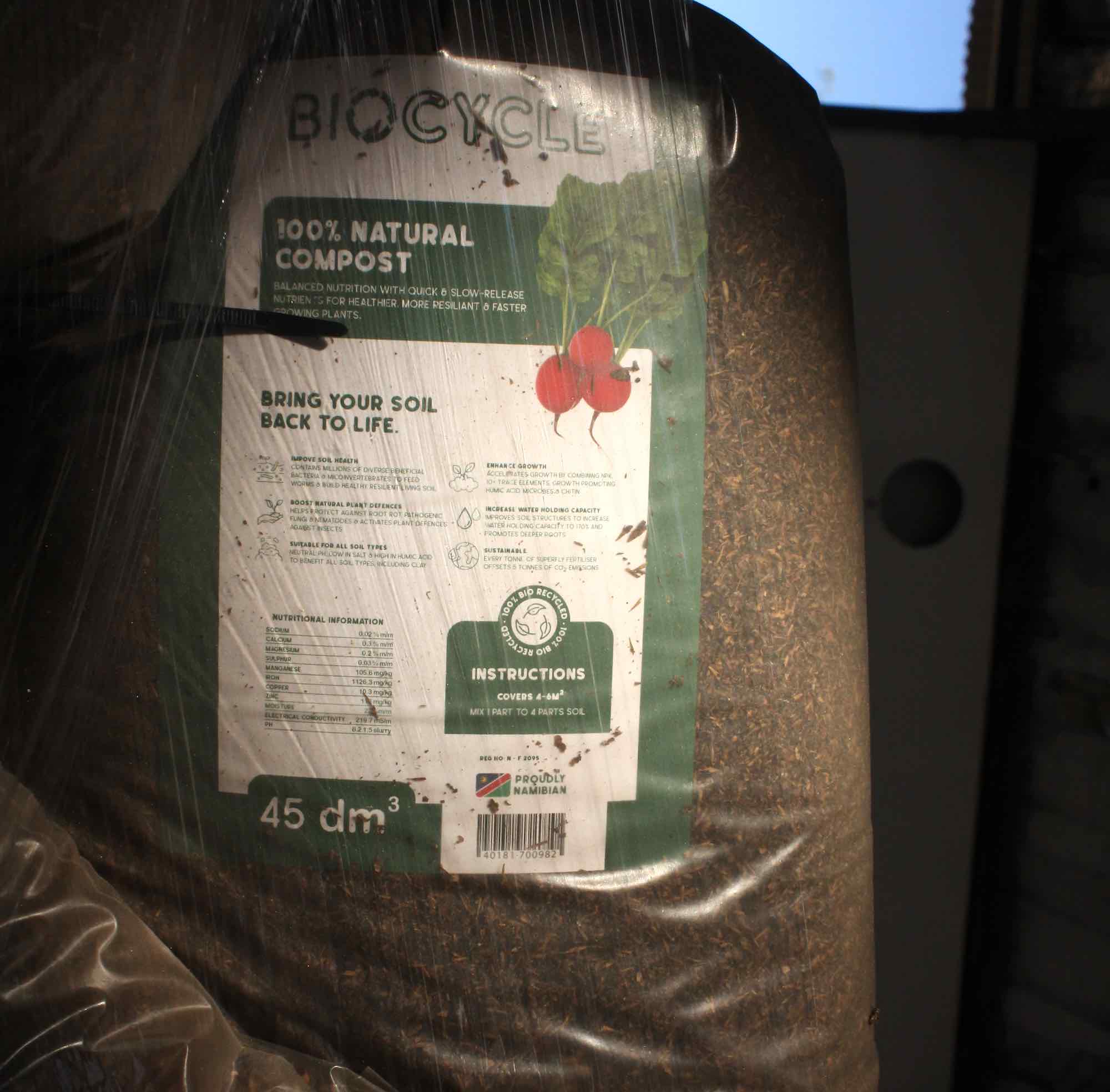
Sven set up this small warehouse with three staff members that grew to 10, as he expanded using a grant from the Namibian Chamber of Environment (NCE). This initial proof of concept phase has been highly successful, as the business has reached break even and is ready to expand. Restaurants, abattoirs and individual households are potential sources of waste that Biocycle could tap into to increase the food supply and thus increase the number of flies that they can farm. The new plans involve doubling production and employing up to 35 people in Windhoek.
The next phase of expansion will involve establishing new warehouses in different parts of Namibia where the larvae can be set to work on new sources of organic waste. These satellite fly farms will receive larvae starter kits from the Windhoek warehouse and use organic waste from towns, breweries, abattoirs and households close to their locations. Local farmers will also benefit from having a reliable supply of high-quality livestock feed and organic fertiliser in towns that are closer to their farms.
A small army of black soldier flies is on the march in Namibia. These little insects are a promising all-in-one solution to multiple environmental and agricultural challenges in a way that creates jobs and boosts national food security. Namibians are invited to join the global soldier fly revolution by buying the high-quality feed and fertiliser produced by Biocycle and supplying their organic waste to the project. You too can experience some of the many benefits of this amazing species.
For articles on similar topics, please click one of the following options:
If you enjoyed this page, then you might also like:
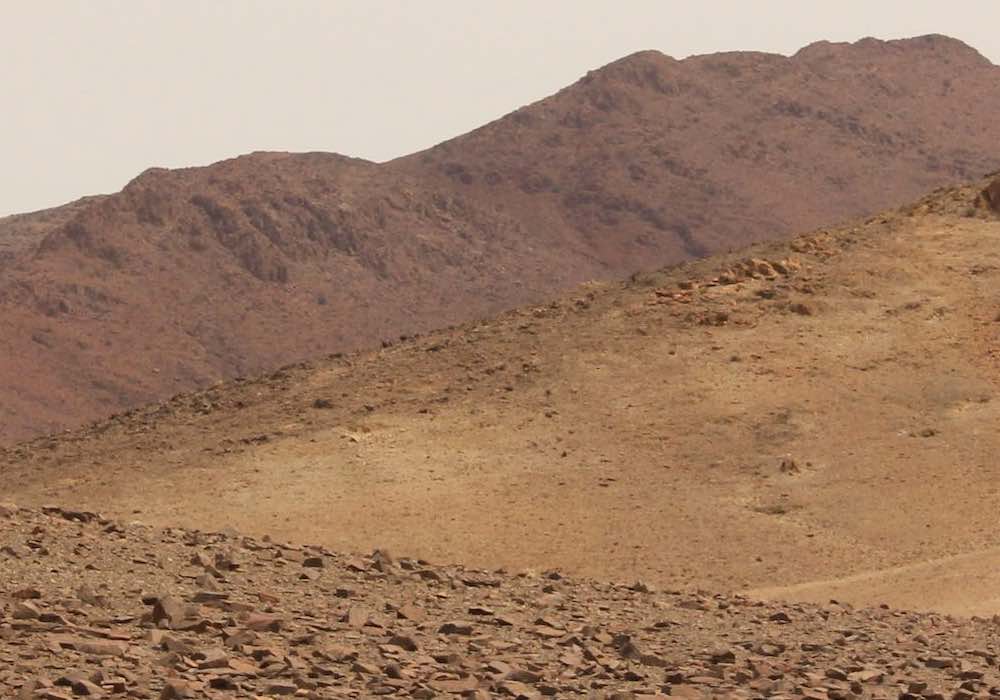

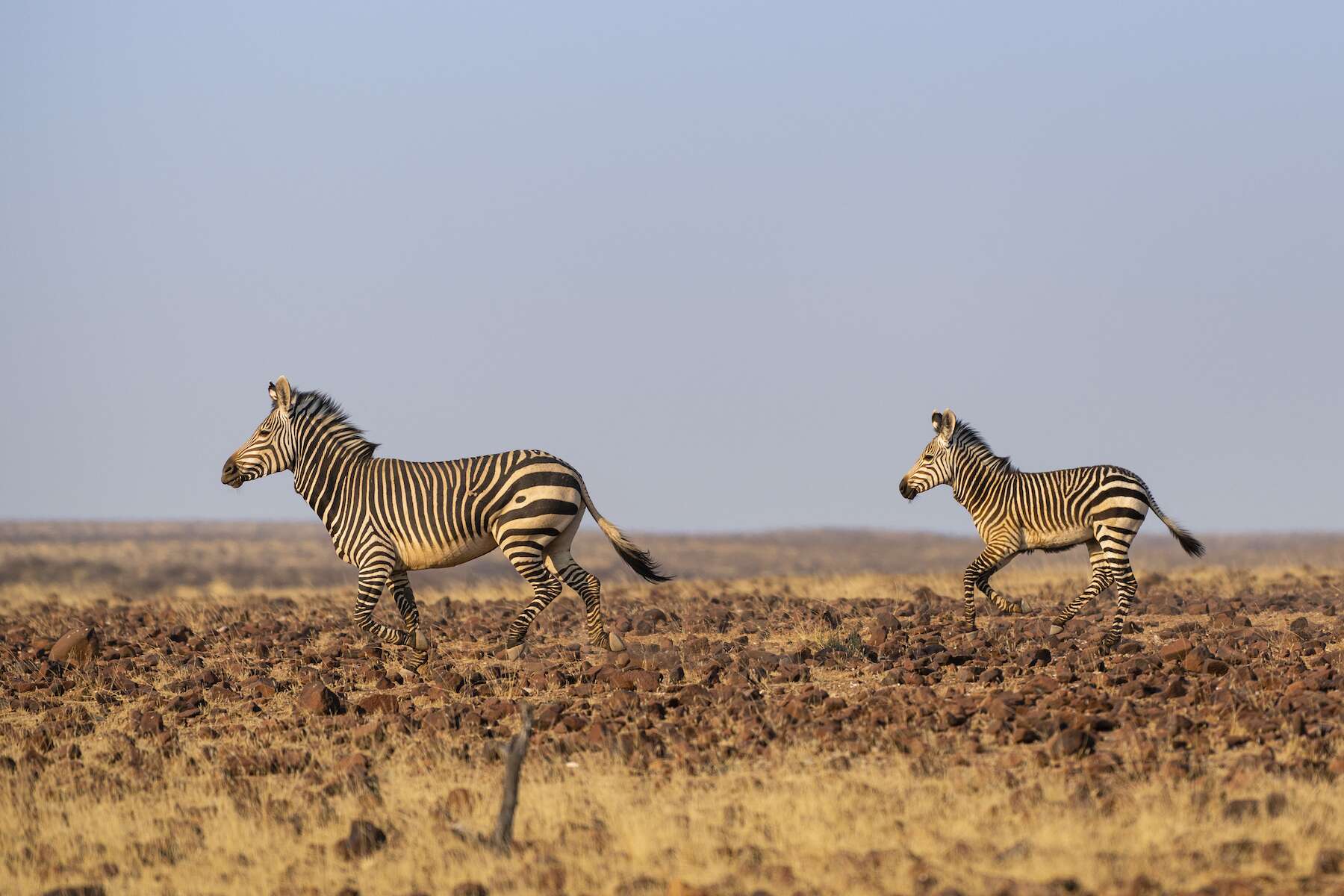
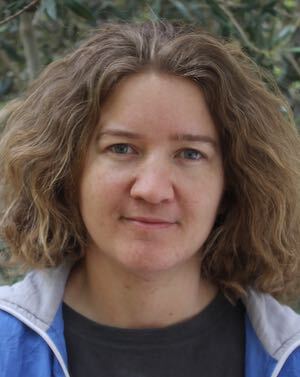
Gail C. Thomson is a carnivore conservationist who has worked in South Africa, Namibia and Botswana on human-carnivore conflict, community conservation and wildlife monitoring. She is interested in promoting clear public communication of science and conservation efforts in southern Africa.
Gail C. Thomson is a carnivore conservationist who has worked in South Africa, Namibia and Botswana on human-carnivore conflict, community conservation and wildlife monitoring. She is interested in promoting clear public communication of science and conservation efforts in southern Africa.
We use cookies to monitor site usage and to help improve it. See our Privacy Policy for details. By continuing to use the site, you acknowledge acceptance of our policy.